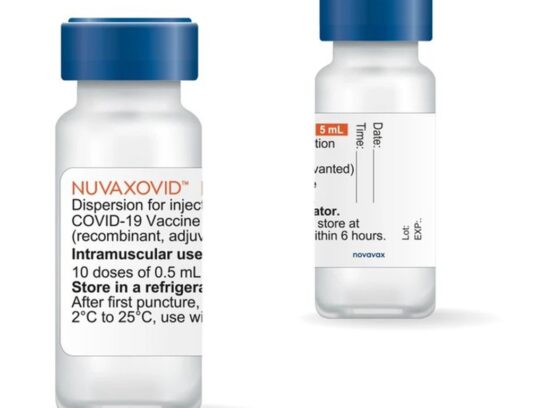
Novavax entered into a co-exclusive licensing agreement with Sanofi to commercialize its COVID-19 vaccine and develop COVID-19 influenza combination vaccines.
In a news release, officials at the biotechnology company in Gaithersburg explained that the agreement “provides individuals with broader access to its protein-based non-mRNA vaccine beginning in 2025.
Sanofi US is based in Bethesda and focuses on medicines, vaccines and self-care solutions, according to its website.
Novavax will receive cash and an equity investment of $1.2 billion and be entitled to royalties for each additional Sanofi vaccine product developed under a non-exclusive license with Novavax’s Matrix-M adjuvant technology, according to the release.
The agreement could enable Novavax to more quickly develop a COVID-19 influenza combination product, according to the news release.
“This collaboration is important for Novavax and for global public health. Our new partnership combines Novavax’s proprietary recombinant protein and nanoparticle technologies, Matrix™ adjuvant and R&D expertise with Sanofi’s world-class leadership in launching and commercializing innovative vaccines,” said John Jacobs, president and CEO.
“Together, we can broaden access to both our COVID-19 vaccine and our adjuvant to ensure more individuals can benefit from the protection vaccines can provide,” Jacobs said in the release.
“With flu and COVID-19 hospital admission rates now closely mirroring each other, we have an opportunity to develop non-mRNA flu-COVID-19 combination vaccines offering patients both enhanced convenience and protection against two serious respiratory viruses,” noted Jean-Francois Toussaint, global head of vaccines R&D.
“We’re excited by the prospect of combining Novavax’s adjuvanted COVID-19 vaccine that has shown high efficacy and favorable tolerability, with our rich portfolio of differentiated flu vaccines that have demonstrated superior protection against flu and its serious complications. Improved tolerability and thermostability, without compromise on efficacy, are what regulators, recommending bodies, and patients will demand.”

Comments are closed.